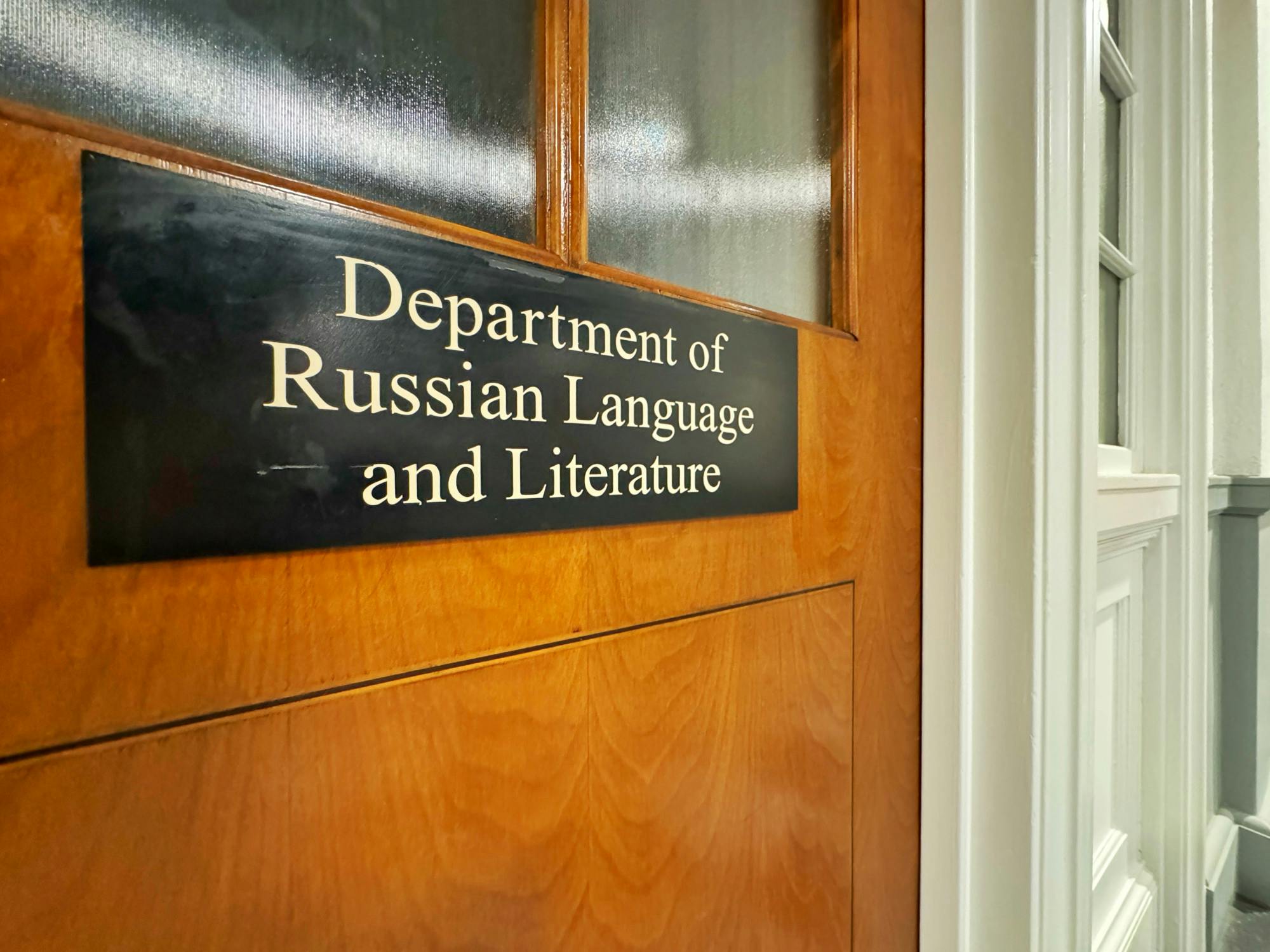Following years of deliberation, faculty members officially renamed the Russian studies department to the East European, Eurasian, and Russian studies department last week, reflecting their desire to encompass the diverse regions surrounding Russia within the discipline. Courses on East Europe and Eurasia were previously offered but went unrecognized under the department’s previous title.
An extensive approval process delayed the official declaration of the name change, which was first proposed and approved in September 2022. In November 2023, over a year after the faculty proposed the name change, the Board of Trustees accepted the proposal — with a formal announcement to the College in late January.
Department chair Lynn Patyk attributed the renaming to “long-developing changes” in Russian studies.
“Over the past 30 years or so, since the collapse of the Soviet Union, we have wanted to decentralize and diversify our focus,” Patyk said. “So, we’re not as concentratedly focused on Russia ... [and instead] more attentive to the other nations that are now independent.”
Sophia Rubens ’24, expressed her satisfaction with the more inclusive department name. She was one of over a hundred students to sign the petition calling for the renaming of the department back in 2022. She said she signed the petition because the “term ‘Russian’ just [didn’t] capture all of [the] diversity” in the region.
Patyk believed an “imperial consciousness underlying the Cold War” was partially responsible for the narrow definition of the former department title. According to Patyk, early faculty members were often Russian émigrés who had an “unconscious, imperial consciousness.” She said that the change reflected the current faculty’s “contemporary perspective.”
Patyk dispelled any belief that the renaming was entirely due to the Russo-Ukrainian war. It was a “spark that triggered [the department’s] action,” she said. While the faculty discussed changes for years, the “actual transformation” was triggered by the onset of the war, she added.
In alignment with the department’s broader focus, the curriculum covers “cultures that are less dominant in the region,” East European, Eurasian and Russian studies professor Tatiana Filimonova said.
“I think it’s important to add that we are expanding, but we are still offering many courses that we used to offer before,” Filimonova said.
Russian language courses are just a few examples of courses that have transitioned with the restructuring of the department.
One of the new additions to the course selection is UKRA 11, “Intensive Ukrainian,” which East European, Eurasian and Russian Studies professor Victoria Somoff teaches.
Patyk applauded Somoff’s suggestion for the course on behalf of the entire department.
“We thought, if we can make it happen, let’s make it happen,” Patyk said. “And [Somoff] did.”
Somoff described why she felt the more inclusive expansion was necessary. In an email, she wrote that she grew up in Ukraine with an “overwhelmingly Russo-centric” academia that is ubiquitous throughout the world. She considered the restructuring a step toward “redress[ing] the injustice in where our academic field has focused.”
She added that she was personally motivated to advocate for the change because of Russia’s war against her homeland.
“Because of this war, it became clear to me that continuing to teach Russian language and culture as usual was no longer possible, and that the voices and perspectives of the peoples and communities that have historically been the victims of Russia’s domination and oppression — Ukraine and Ukrainian people most urgently — must be brought into focus and seen as the chance to transform the field,” Somoff wrote.
Somoff wrote that she hopes the newly-restructured department broadens the “prior Russo-centric focus” to allow for the “historical experiences and cultures of other Eastern European and Eurasian countries” to be more rigorously studied.
As for future additions to the department, Somoff and Lada Kolomiyets, a visiting Ukrainian history and culture professor, are preparing the second-year sequence of Ukrainian language courses and designing a minor in Ukrainian studies.
The first-year sequence of the Ukrainian language course has already been successful. According to Patyk, the course has exceeded expectations compared to numbers from beginner Ukrainian language courses at other universities.
“We also learned ... that [the] beginning Ukraine [course] only had one student at Harvard [University] and four or five at [University of California,] Berkeley,” Patyk said. “And these are much bigger universities.”
The faculty hopes there will be continued student interest in other foreign language courses. Plans for future language courses have not solidified, as the process is experimental and must have a firm foundation for development, Patyk said. Monetary gifts and grants have helped by covering the funding for new courses and activities in the department for “next year, and we hope, moving forward,” Patyk added.
Correction: A previous version of this article stated the course RUSS11, when it should have been UKRA11. The course is now properly named.




